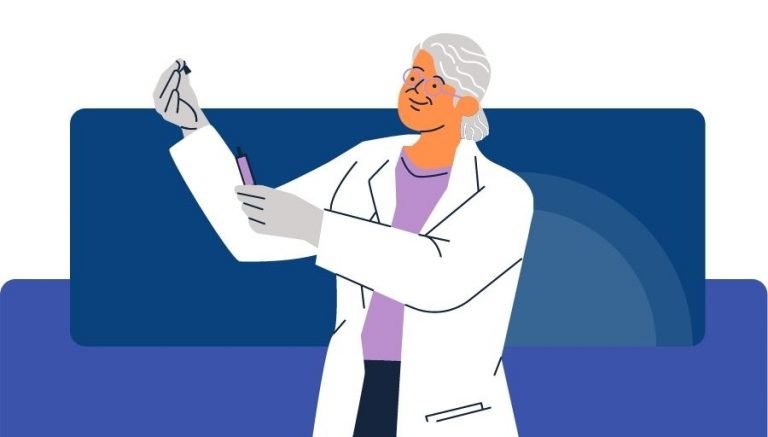Disruptive Behaviour Or Dissocial Disorders – ICD 11 Codes
Definition of Disruptive Behaviour Or Dissocial Disorders: Disruptive behaviour and dissocial disorders are characterised by persistent behaviour problems that range from markedly and persistently defiant, disobedient, provocative or spiteful (i.e., disruptive) behaviours to those that persistently violate the basic rights of others or major age-appropriate societal norms, rules, or laws (i.e., dissocial). Onset of Disruptive and dissocial disorders is commonly, though not always, during childhood.
Oppositional defiant disorder
Definition of Oppositional defiant disorder: Oppositional defiant disorder is a persistent pattern (e.g., 6 months or more) of markedly defiant, disobedient, provocative or spiteful behaviour that occurs more frequently than is typically observed in individuals of comparable age and developmental level and that is not restricted to interaction with siblings. Oppositional defiant disorder may be manifest in prevailing, persistent angry or irritable mood, often accompanied by severe temper outbursts or in headstrong, argumentative and defiant behaviour. The behaviour pattern is of sufficient severity to result in significant impairment in personal, family, social, educational, occupational or other important areas of functioning
ICD 11 Code For Oppositional defiant disorder
6C90 Oppositional defiant disorder
6C90.0 Oppositional defiant disorder with chronic irritability-anger
Definition of Oppositional defiant disorder with chronic irritability-anger: All definitional requirements for oppositional defiant disorder are met. This form of oppositional defiant disorder is characterised by prevailing, persistent angry or irritable mood that may be present independent of any apparent provocation. The negative mood is often accompanied by regularly occurring severe temper outbursts that are grossly out of proportion in intensity or duration to the provocation. Chronic irritability and anger are characteristic of the individual’s functioning nearly every day, are observable across multiple settings or domains of functioning (e.g., home, school, social relationships), and are not restricted to the individual’s relationship with his/her parents or guardians. The pattern of chronic irritability and anger is not limited to occasional episodes (e.g., developmentally typical irritability) or discrete periods (e.g., irritable mood in the context of manic or depressive episodes).
6C90.00 Oppositional defiant disorder with chronic irritability-anger with limited prosocial emotions
Definition of Oppositional defiant disorder with chronic irritability-anger with limited prosocial emotions: All definitional requirements for oppositional defiant disorder with chronic irritability-anger are met. In addition, the individual exhibits characteristics that are sometimes referred to as ‘callous and unemotional’. These characteristics include a lack of empathy or sensitivity to the feelings of others and a lack of concern for others’ distress; a lack of remorse, shame or guilt over their own behaviour (unless prompted by being apprehended), a relative indifference to the probability of punishment; a lack of concern over poor performance in school or work; and limited expression of emotions, particularly positive or loving feelings toward others, or only doing so in ways that seem shallow, insincere, or instrumental.
6C90.01 Oppositional defiant disorder with chronic irritability-anger with typical prosocial emotions
Definition of Oppositional defiant disorder with chronic irritability-anger with typical prosocial emotions: All definitional requirements for oppositional defiant disorder with chronic irritability-anger are met. The individual does not exhibit characteristics referred to as ‘callous and unemotional’, such as lack of empathy or sensitivity to the feelings of others and a lack of concern for others’ distress.
6C90.0Z Oppositional defiant disorder with chronic irritability-anger unspecified
6C90.1 Oppositional defiant disorder without chronic irritability-anger
Definition of Oppositional defiant disorder without chronic irritability-anger: Meets all definitional requirements for oppositional defiant disorder. This form of oppositional defiant disorder is not characterised by prevailing, persistent, angry or irritable mood, but does feature headstrong, argumentative, and defiant behaviour.
6C90.10 Oppositional defiant disorder without chronic irritability-anger with limited prosocial emotions
Definition of Oppositional defiant disorder without chronic irritability-anger with limited prosocial emotions: All definitional requirements for oppositional defiant disorder without chronic irritability-anger are met. In addition, the individual exhibits characteristics that are sometimes referred to as ‘callous and unemotional’. These characteristics include a lack of empathy or sensitivity to the feelings of others and a lack of concern for others’ distress; a lack of remorse, shame or guilt over their own behaviour (unless prompted by being apprehended), a relative indifference to the probability of punishment; a lack of concern over poor performance in school or work; and limited expression of emotions, particularly positive or loving feelings toward others, or only doing so in ways that seem shallow, insincere, or instrumental. This pattern is pervasive across situations and relationships (i.e., the qualifier should not be applied based on a single characteristic, a single relationship, or a single instance of behaviour) and is pattern is persistent over time (e.g., at least 1 year).
6C90.11 Oppositional defiant disorder without chronic irritability-anger with typical prosocial emotions
Definition of Oppositional defiant disorder without chronic irritability-anger with typical prosocial emotions: All definitional requirements for oppositional defiant disorder without chronic irritability-anger are met. The individual does not exhibit characteristics referred to as ‘callous and unemotional’, such as lack of empathy or sensitivity to the feelings of others and a lack of concern for others’ distress.
6C90.1Z Oppositional defiant disorder without chronic irritability-anger unspecified
6C90.Z Oppositional defiant disorder unspecified
Conduct-dissocial disorder
Definition of Conduct-dissocial disorder: Conduct-dissocial disorder is characterised by a repetitive and persistent pattern of behaviour in which the basic rights of others or major age-appropriate societal norms, rules, or laws are violated such as aggression towards people or animals; destruction of property; deceitfulness or theft; and serious violations of rules. The behaviour pattern is of sufficient severity to result in significant impairment in personal, family, social, educational, occupational or other important areas of functioning. To be diagnosed, the behaviour pattern must be enduring over a significant period of time (e.g., 12 months or more). Isolated dissocial or criminal acts are thus not in themselves grounds for the diagnosis.
ICD 11 Code For Conduct-dissocial disorder
6C91 Conduct-dissocial disorder
6C91.0 Conduct-dissocial disorder childhood onset
Definition of Conduct-dissocial disorder childhood onset: Conduct-dissocial disorder, childhood onset is characterised by a repetitive and persistent pattern of behaviour in which the basic rights of others or major age-appropriate societal norms, rules, or laws are violated such as aggression towards people or animals; destruction of property; deceitfulness or theft; and serious violations of rules. To be diagnosed, features of the disorder must be present during childhood prior to adolescence (e.g., before 10 years of age) and the behaviour pattern must be enduring over a significant period of time (e.g., 12 months or more). Isolated dissocial or criminal acts are thus not in themselves grounds for the diagnosis.
6C91.00 Conduct-dissocial disorder childhood onset with limited prosocial emotions
Definition of Conduct-dissocial disorder childhood onset with limited prosocial emotions: Meets all definitional requirements for Conduct-dissocial disorder, childhood onset. In addition, the individual exhibits characteristics that are sometimes referred to as ‘callous and unemotional’. These characteristics include a lack of empathy or sensitivity to the feelings of others and a lack of concern for others’ distress; a lack of remorse, shame or guilt over their own behaviour (unless prompted by being apprehended), a relative indifference to the probability of punishment; a lack of concern over poor performance in school or work; and limited expression of emotions, particularly positive or loving feelings toward others, or only doing so in ways that seem shallow, insincere, or instrumental.
6C91.01 Conduct-dissocial disorder childhood onset with typical prosocial emotions
Definition of Conduct-dissocial disorder childhood onset with typical prosocial emotions: All definitional requirements for conduct-dissocial disorder, childhood onset are met. The individual does not exhibit characteristics referred to as ‘callous and unemotional’, such as lack of empathy or sensitivity to the feelings of others and a lack of concern for others’ distress.
6C91.0Z Conduct-dissocial disorder childhood onset unspecified
6C91.1 Conduct-dissocial disorder adolescent onset
Definition of Conduct-dissocial disorder adolescent onset: Conduct-dissocial disorder, adolescent onset is characterised by a repetitive and persistent pattern of behaviour in which the basic rights of others or major age-appropriate societal norms, rules, or laws are violated such as aggression towards people or animals; destruction of property; deceitfulness or theft; and serious violations of rules. No features of the disorder are present during childhood prior to adolescence (e.g., before 10 years of age). To be diagnosed, the behaviour pattern must be enduring over a significant period of time (e.g., 12 months or more). Isolated dissocial or criminal acts are thus not in themselves grounds for the diagnosis.
6C91.10 Conduct-dissocial disorder adolescent onset with limited prosocial emotions
Definition of Conduct-dissocial disorder adolescent onset with limited prosocial emotions: All definitional requirements for conduct-dissocial disorder, adolescent onset are met. In addition, the individual exhibits characteristics that are sometimes referred to as ‘callous and unemotional’. These characteristics include a lack of empathy or sensitivity to the feelings of others and a lack of concern for others’ distress; a lack of remorse, shame or guilt over their own behaviour (unless prompted by being apprehended), a relative indifference to the probability of punishment; a lack of concern over poor performance in school or work; and limited expression of emotions, particularly positive or loving feelings toward others, or only doing so in ways that seem shallow, insincere, or instrumental.
6C91.11 Conduct-dissocial disorder adolescent onset with typical prosocial emotions
Definition of Conduct-dissocial disorder adolescent onset with typical prosocial emotions: All definitional requirements for conduct-dissocial disorder, adolescent onset are met. The individual does not exhibit characteristics referred to as ‘callous and unemotional’, such as lack of empathy or sensitivity to the feelings of others and a lack of concern for others’ distress.
6C91.1Y Other specified conduct-dissocial disorder adolescent onset
6C91.Z Conduct-dissocial disorder unspecified
Other specified disruptive behaviour or dissocial disorders
ICD 11 Code For Other specified disruptive behaviour or dissocial disorders
6C9Y Other specified disruptive behaviour or dissocial disorders
Disruptive behaviour or dissocial disorders unspecified
ICD 11 Code For Disruptive behaviour or dissocial disorders unspecified
6C9Z Disruptive behaviour or dissocial disorders unspecified





